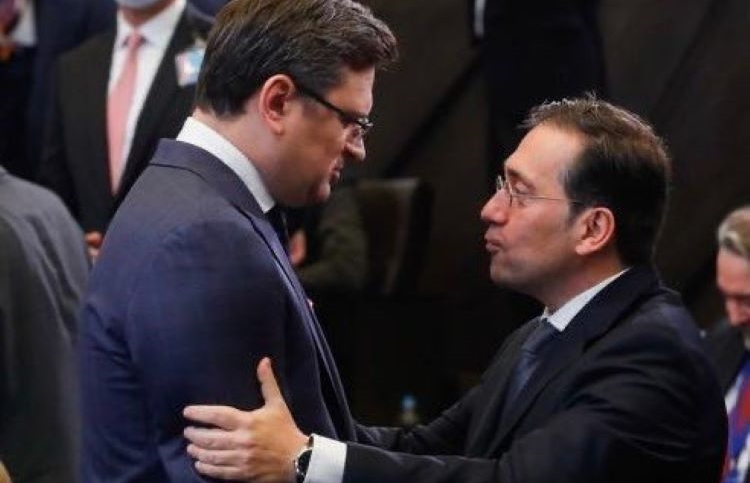The Diplomat
Foreign Minister José Manuel Albares participates today in Brussels in the first Foreign Affairs Council (FAC) of the Czech Presidency, which will revisit the Russian aggression against Ukraine almost a month after EU leaders granted Ukraine candidate status to the Union.
The Council will be attended by Ukrainian Foreign Minister Dmytro Kuleba via videoconference. It is also the first FAC under the Czech Presidency of the Council of the EU, which began on July 1 and whose priorities include the reconstruction of this country after the Russian invasion.
The last European Council, which met in Brussels on June 23-24 (and in which President Volodymir Zelenski participated, also by videoconference), granted candidate country status to Ukraine (and Moldova) and urged the European Commission to report to the Council on the fulfillment of the conditions for accession, after which “further steps” will be decided. The EU leaders’ decision came four days after the European Commission stated in its opinion on the membership application that, “overall, Ukraine is well advanced in achieving stability of institutions guaranteeing democracy, the rule of law, human rights and respect for and protection of minorities.”
“I believe that we are before a truly historic Council” in which “the commitment of the entire European Union, of all the Member States, to the solidarity and pro-European commitment of the Ukrainian people” has been demonstrated, declared the President of the Government, Pedro Sánchez, at the press conference following the European Council. Around the same time, Albares announced – at the end of the previous Foreign Affairs Council meeting in Luxembourg – Spain’s support for the European Commission’s opinion on Ukraine’s application for membership, an issue which, in his opinion, could be “on the table” during the Spanish Presidency of the Council of the EU, in the second half of 2023.
On the other hand, the Foreign Affairs Council will also discuss today relations between the EU and Latin America and the Caribbean, and digital diplomacy. On current affairs, ministers will address the manipulation of information and interference by foreign actors, the situation in the Democratic Republic of Congo, the possibility of creating an EU-Israel Association Council, the upcoming ministerial meeting between the EU and the League of Arab States, and the situation in Sri Lanka and Tunisia. Apart from that, the Council is scheduled to adopt conclusions on EU digital diplomacy, manipulation of information and interference by foreign actors, EU priorities at the 77th UN General Assembly and EU development aid objectives for 2022.






